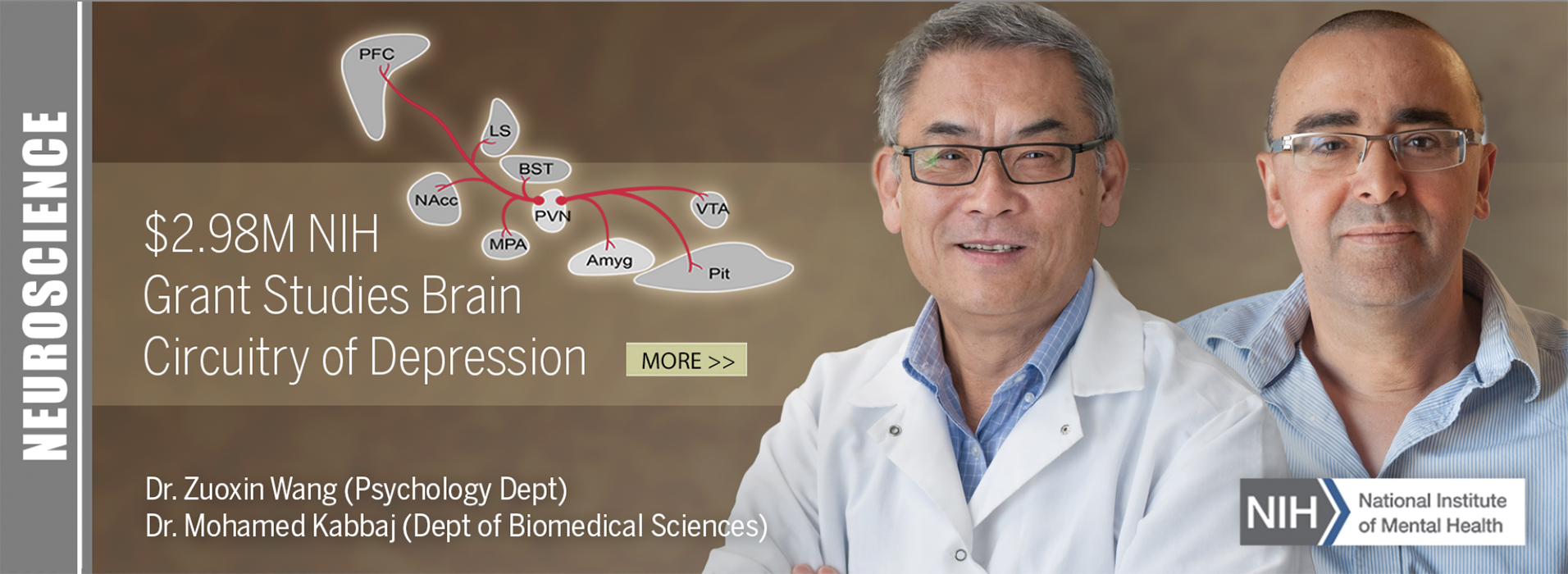Drs. Zuoxin Wang and Mohamed Kabbaj Awarded $2.98M NIH Grant

In humans, social attachment with partners, relatives, or friends act as a protective buffer against many negative consequences of life stress, whereas lack of social attachments can lead to serious pathologies including dysphoria, anxiety, depression, sleep disturbance, cardiovascular problems, and immune system deficits. In the social prairie voles, acute and chronic social isolation as well as partner separation induce anxiety and depression-like behaviors, enhance stress response, and alter activities of several neurochemical systems, including the oxytocinergic system. Data from the Wang/Kabbaj group and others have shown that oxytocin (OT) is involved not only in the formation of pair bonds in this species, but also in the response to social isolation/ partner separation as well as social buffering of stress responses. In this project, Dr. Wang and Dr. Kabbaj will verify the overall hypothesis that breaking bonds in voles alters the OT circuitry projecting from the hypothalamic PVN to the nucleus accumbens (which represents 90% of OT projections to nucleus accumbens) and leads to negative consequences on social behaviors in male and female prairie voles.
